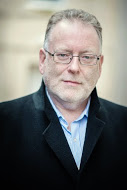On Tuesday 3rd November, 8pm – 9pm (GMT), EBN will be co-hosting a very special twitter-chat live from the International Dementia Conference taking place in Birmingham, England. Click here for the conference programme and follow #dementiacare15 for live updates on Tuesday 3rd and Wednesday 4th November.
Our twitter-chat will be around the topic of living well with dementia in the 21st century and be hosted by Professor June Andrews and the Dementia Centre.
To celebrate this, we are delighted to bring you today’s guest blog from Mark Butler, Director of the Dementia Festival of Ideas on living well with dementia in the 21st century.
Participating in the Twitter chat requires a Twitter account. If you do not already have one you can create an account at Twitter. Once you have an account contributing is straightforward – follow the discussion by searching links to #ebnjc or @EBNursingBMJ, or better still, create a tweet (tweets are text messages limited to 140 characters) to @EBNursingBMJ and add #ebnjc (the EBN chat hash tag) at the end of your tweet – this allows everyone taking part to view your tweets.
For further details on how participate in this twitter-chat please click here.
The issues raised in our International Dementia Conference and the Care Show suggest things need to change. Dementia is more visible than it has ever been in the West. This does not mean that the right policies are being pursued or the right thinking is being developed. Nor does this mean resources are going to the things that will make the most positive difference to people’s lives. It is not good enough to say this visibility is inherently a good thing simply because it counters stigma and draws attention. That era is over. We have to address a more complex situation where a lot is happening but these are not really things which will make a difference in any evidence based way. More worryingly many things for which there is sound evidence are not being done. The current focus on dementia might be seen as no more than a sophisticated version of “anything is better than nothing”. The world of dementia is crowded with people doing things. There appears to be a lot going on. But what is needed is a type of activism which opens dementia up, pursues difficult questions about efficacy and impact of what is going on and secures a shift in thinking and doing.
Put simply this activism is about
- acting today on what we know makes a difference to people’s lives
- making the hard social and economic case for dementia wherever it needs to be made
- challenging the current framing of dementia in the media and politics – creating a new narrative for dementia which goes beyond the superficial or the politically expedient
- sharing what people need to know and do both now and in future, and how they can change things as well as accept them
- mitigating the hopeless hunt for a single set of solutions by the state
- disrupting current thinking and promoting the need for wider use of evidence and research
- creating conditions where people are clear about what they can expect from whom
This activism needs to be seen as a new disruptive voice. It needs a new vehicle, somewhere international to gather evidence and to collaborate and then to support decisive action. It is not so much about campaigning for change by the state or by others but about offering an alternative to them. This is what DSDC will seek to do in the next 25 years, working with whoever shares this view and can make change happen.
In the end dementia care and the future for people with dementia is about what we do – us, our friends and families.
Mark Butler, Director of the Dementia Festival of Ideas
Check out EBN’s own top 5 recommended resources on dementia below:
- Kate Swaffer talks to Gary Mitchell (EBN Associate Editor) about living with younger onset dementia.
- Orii McDermott’s commentary on a psychological intervention for family carers of people with dementia
- Nathan Davies commentary on attitudes towards assisted dying in dementia
- Professor Jiska Cohen-Mansfield’s commentary on non-pharmacological interventions in dementia
- Joanne Agnelli’s blog on the importance of language in dementia care

